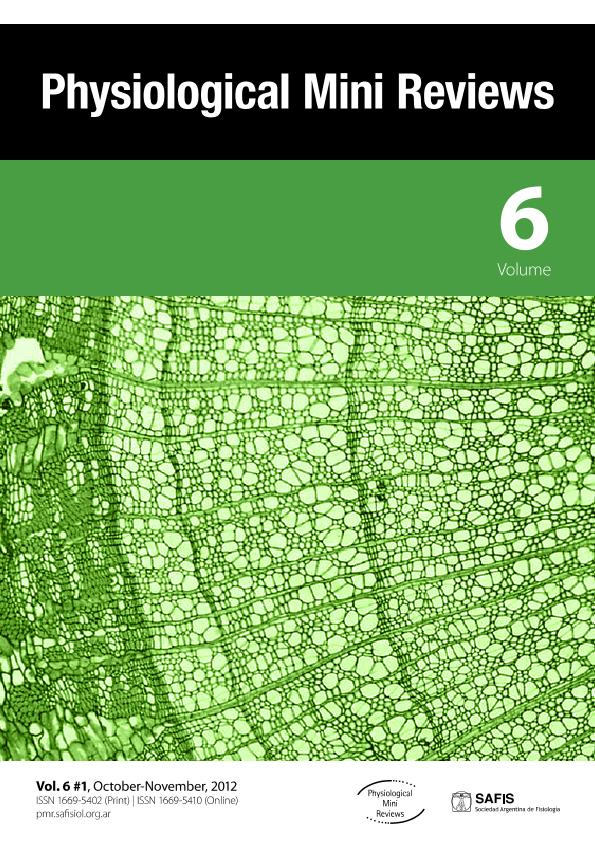Artículo
Physiology, molecular biology and therapeutic potential of the thymic peptide thymulin
Pardo, Joaquin ; Schwerdt, José Ignacio
; Schwerdt, José Ignacio ; Reggiani, Paula Cecilia
; Reggiani, Paula Cecilia ; Zappa, María Eugenia
; Zappa, María Eugenia ; Pereyra, Andrea Soledad
; Pereyra, Andrea Soledad ; Brown, Oscar Alfredo
; Brown, Oscar Alfredo ; Goya, Rodolfo Gustavo
; Goya, Rodolfo Gustavo
 ; Schwerdt, José Ignacio
; Schwerdt, José Ignacio ; Reggiani, Paula Cecilia
; Reggiani, Paula Cecilia ; Zappa, María Eugenia
; Zappa, María Eugenia ; Pereyra, Andrea Soledad
; Pereyra, Andrea Soledad ; Brown, Oscar Alfredo
; Brown, Oscar Alfredo ; Goya, Rodolfo Gustavo
; Goya, Rodolfo Gustavo
Fecha de publicación:
10/2012
Editorial:
Sociedad Argentina de Fisiología
Revista:
Physiological Mini Reviews
ISSN:
1669-5410
e-ISSN:
1669-5410
Idioma:
Inglés
Tipo de recurso:
Artículo publicado
Clasificación temática:
Resumen
Thymulin is a thymic hormone exclusively produced by the thymic epithelial cells. After its discovery and initial characterization in the ‘70s, it was demonstrated that thymulin production and secretion is strongly influenced by the neuroendocrine system. Conversely, a growing core of information, to be reviewed here, points to thymulin as a hypophysiotropic peptide. Additionally, the substantial body of evidence pointing to thymulin and some synthetic analogs as anti-inflammatory and analgesic molecules in the brain and other organs will be also reviewed. In recent years, a synthetic DNA sequence coding for a biologically active analog of thymulin, metFTS, was constructed and cloned in different adenoviral vectors. A number of recent studies suggest that thymulin gene therapy may be a suitable therapeutic strategy to prevent some of the endocrine and reproductive alterations that typically appear in congenitally athymic (nude) mice, used as a suitable model of neuroendocrine and reproductive aging. Summing up, the present article briefly reviews the literature on the physiology of the thymulin-neuroendocrine axis and the anti-inflammatory properties of the molecule and its analogs. The availability of novel biotechnological tools should boost basic studies on the molecular biology of thymulin and should also allow an assessment of the potential of gene therapy to restore circulating thymulin levels in thymodeficient animal models and eventually, in humans.
Archivos asociados
Licencia
Identificadores
Colecciones
Articulos(INIBIOLP)
Articulos de INST.DE INVEST.BIOQUIMICAS DE LA PLATA
Articulos de INST.DE INVEST.BIOQUIMICAS DE LA PLATA
Citación
Pardo, Joaquin; Schwerdt, José Ignacio; Reggiani, Paula Cecilia; Zappa, María Eugenia; Pereyra, Andrea Soledad; et al.; Physiology, molecular biology and therapeutic potential of the thymic peptide thymulin; Sociedad Argentina de Fisiología; Physiological Mini Reviews; 6; 1; 10-2012; 2-12
Compartir



